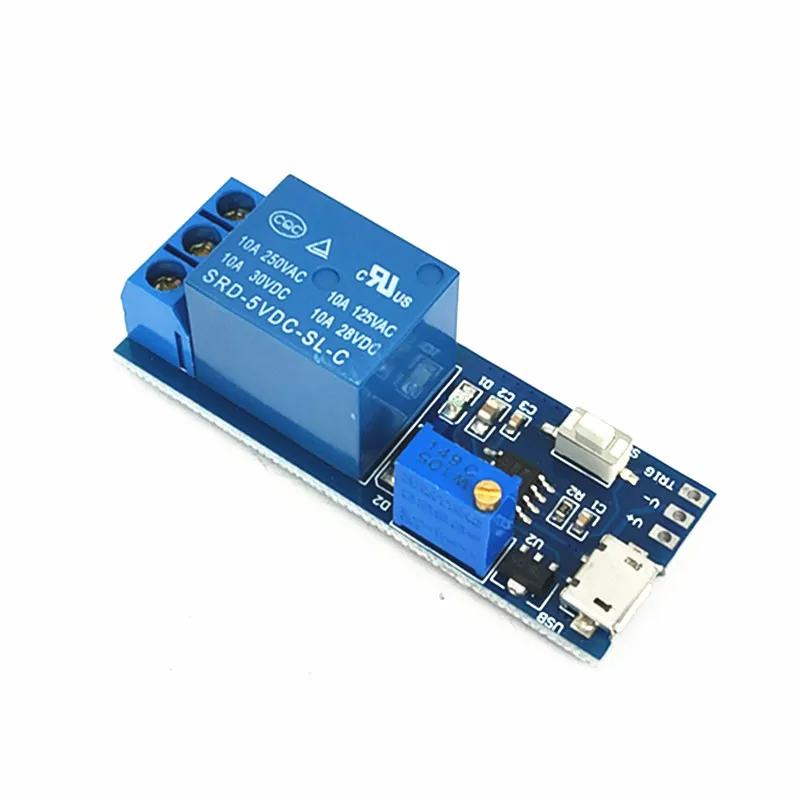

- Arduino delay alternative how to#
- Arduino delay alternative serial#
- Arduino delay alternative pro#
- Arduino delay alternative plus#
Arduino delay alternative pro#
So that's where the apparent 14-bit limit comes from: the number of 4-cycle loops has to fit in 16 bits, so the number of microseconds is 1/4th that (assuming 16 MHz system clock - so an 8 MHz pro mini, for example, you could specify twice as long of a delay to delayMicroseconds()!). It multiplies the requested delay by 4 (for 16MHz clock, at least), converting it into the number of iterations of a loop written in inline assembler that takes 4 clock cycles per iteration. It takes an unsigned int (16-bit) instead of unsigned long, first off. delayMicroseconds, however, needs much higher accuracy than that method could achieve (micros takes something like 7-8us to return, and has resolution of 4us, since the timer in question runs off the 16MHz clock with /64 prescale) it's implemented by counting clock cycles.
Arduino delay alternative plus#
delay() is based on micros() and the millis timer system (a hardware timer is configured prior to setup() being called, with the overflow interrupt incrementing a global count of milliseconds millis() uses that count, and micros uses that plus the current count on the timer).
Arduino delay alternative serial#
Open your serial port port new Serial(this, COMXX, 9600) // <- SUBSTITUTE. The issue with delayMicroseconds() having the maximum length of 16383 is unrelated - that limitation is because delayMicroseconds is, under the hood, implemented completely differently from delay(). delay(100) // we have to make a delay to avoid overloading the serial port.

Sometimes it will warn about things that are fine, but when you see warnings, and it’s not doing what you want, the warnings are a good place to start looking. You can turn them back on in File -> preferences. Except, arduino turns off compiler warnings by default. Note that the first case (but not the second), where the constant expression generates an overflow, would actually generate a compiler warning….

Solution is also quite simple - just declare time as an unsigned long, instead of int. Int time=60000 //this ends up as -5536 too. yes, it did occur to me to place the variable inside the 'time value' of the 'delay ()' parameter, the compiler doesn't like it, it throws and error, it highlights that line and says 'value is not ignored as is ought to be' apparently the parameter 'delay ()' is something you can't change like a variable, it can. The other way an arduino user could get in trouble here (really, the same way, only through a different route) would be if they assigned the delay to a data type that couldn’t fit it, for example: Solution is simple - explicitly tell the compiler that you intend for that literal to be an unsigned long, by putting UL after one of the numbers (the other will be automatically promoted to unsigned long to match): There are two ways that one could get into trouble trying to pass numbers larger than those used in blink, but smaller than 4.2 billion toįirst, if you generate the number on the spot by multiplying numbers together, for example delay(60*1000) īoth of these numbers will default to int (16-bit signed integer from -32768 to 32767), so that multiplication will overflow that… leaving you with -5536 if my math serves me… Then, that gets converted to an unsigned long, leaving you with 2^32-5536, or, well, approximately 4.2 billion. someone cited this thread elsewhere, here is the correct explanation:ĭelay() takes an unsigned long (32-bit number between 0 and 2^32-1, or about 4.2 billion). can you guys help maybe?īyte C_NOW = 0 byte C_NEXT = 0 int RANDOM_R = 0 int DIRECTION = 1 įill_solid(leds, NUM_LEDS, CHSV(C_NOW, SATURATION, BRIGHTNESS)) FastLED.Yeesh.

Arduino delay alternative how to#
but i cant seem to figure out how to convert the code to use millis in stead of delays.
code follows: includeI've spent ages trying to figure this out so I'd really appreciate any help. the problem now is that the delay for my rbg led is messing with my other effects. It's a learning excersize so I can figure out how to move from using the delay to using a timer. A while back i wrote a code with your help for a moodlight and it works great.īut now i want to build the arduino in a christmas village and therefor i want to control some other leds at the same time.


 0 kommentar(er)
0 kommentar(er)
